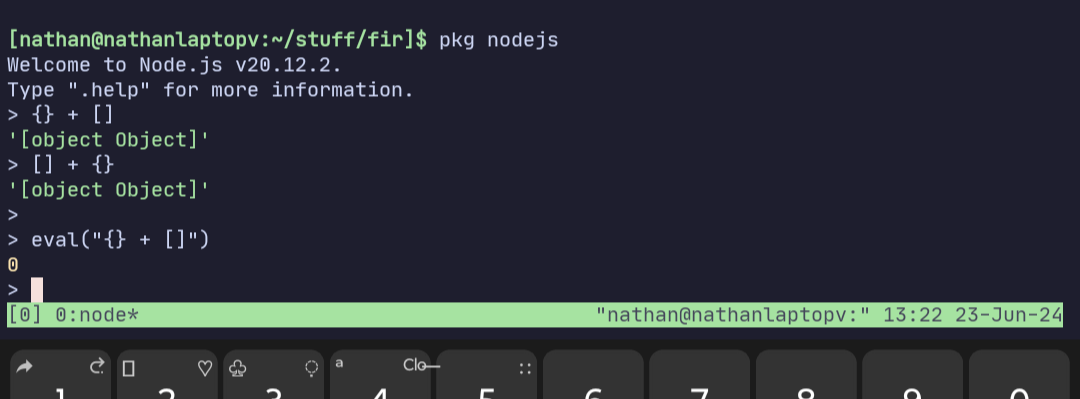

Mobile Firefox. The swipe menu is empty on Niagara.


Mobile Firefox. The swipe menu is empty on Niagara.
Immediately onto the lap.


I’m on Librewolf, but Floorp sounds nice!


Tab grouping is nice, but I’ve found Sidebery to meet my needs (specifically nested tab groups, and separating projects — plus it worked out of the box with Firefox Color) much better. I have it configured to automatically unload collapsed branches, which is nice as a tab hoarder, and it can fully send entire panels to your bookmarks for later usage (this is a massive performance improvement when you’re regularly opening 100–200 tabs/day per panel). A native solution, however, would be much appreciated — as long as there’s a way to nest tab groups and unload their contents.


Based on your quite, this is a use-after-free, meaning that despite Firefox marking the memory region as free to be reallocated, it continues to use the memory. This is dangerous as an attacker may be able to allocate in that region, leetting them change the old structure’s values.


I have serve-web running as a service, but that only works well on desktop screen layouts — from my experience, it runs terribly on mobile. However, even then, my tab layout isn’t synced between devices. My tmux saves all of my open projects, so I could throw my phone in a woodchipper at any moment, pull out my laptop, and be exactly where I left off. Good luck doing that with vscode.


I can run Neovim on my phone via Termux. I can run Neovim over SSH. I can run Neovim in tmux. That’s not possible with VSCode.


101% complete


♪ It’s the ciiircle of shiiiiiiiit ♪


Simple; take a picture of yourself to hold a circular reference.
Nix has flakes; nix run can contain pretty much all of the needed dependencies. If that’s not enough, you can set up an entire container as a module.
Yep, parentheses force {} to be interpreted as an expression rather than a block — same reason why IIFEs have !function instead of just function.
The inspector REPL evaluates as a statement-with-value (like eval), so the {} at the beginning is considered an empty block, not an object. This leaves +[], which is 0. I don’t know what would make Node differ, however.
Edit: Tested it myself. It seems Node prefers evaluating this as an expression when it can, but explicitly using eval gives the inspector behavior: 


A MONAD IS A MONOID IN THE CATEGORY OF ENDOFUNCTORS
Sadly you can’t build a singleton. AbstractExtensibleMarkupLanguageHypertextTransformerProtocolRequestFactoryBuilder$Companion?


tips arch (btw)


SuicAid, the solution to your problems with suicide.


impl<'a, T: Child> ChildRef<'a, T> {
fn orphanize<T: Child>(r: Self) -> Orphan<T>;
}
Argument parsing; turning Rc foo = bar into Reconfigure(|c| c.foo = "bar").
universe.take()